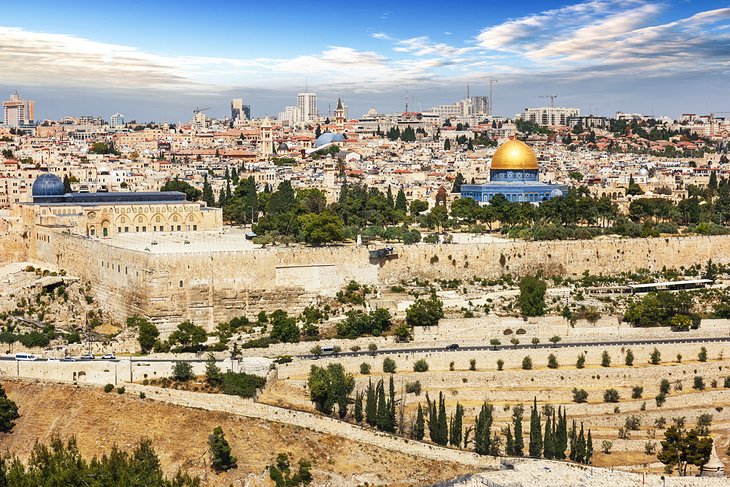
Today we begin Ruth Chapter 3.
For the Complete Jewish Bible, click HERE.
For the King James Version, click HERE.
Before we dive into our text study of Ruth Chapter 3, we need to go over one incredible theological principle demonstrated in the story of Ruth.
I’m talking about HOW the role of the Kinsman Redeemer is connected to God’s salvation plan for the whole world.
So let’s get into it.
Chapter 3 kicks off with Naomi instructing her daughter-in-law Ruth to visit Boaz in the middle of the night and make a case that he should marry her because he is the family’s kinsman redeemer.
Boaz’s response was positive but there’s an interesting caveat he added in verses 12-13.
He said…
“Although it is true that I am a kinsman-redeemer of our family, there is another who is more closely related than I. Stay here for the night, and in the morning if he wants to do his duty as your kinsman-redeemer, good; let him redeem you. But if he is not willing, as surely as the Lord lives I will do it. Lie here until morning.”-Ruth 3;:13
I can tell you right now, they’re ain’t a gentile Christian on the planet who truly understands those verses.
Boaz is telling Ruth there’s actually another GO’EL or redeemer in Bethlehem who is more closely related to Elimelech than he is.
Therefore, in order to follow proper protocol, Boaz must give this nearer relative the chance to perform the duties of the GO’EL before he does.
However, Boaz adds that if that other man isn’t willing to be her GO’EL, he’ll step in take over.
Finally, to reassure Ruth he’ll keep his promise, Boaz gifts Ruth with as much grain as she could possible carry back home to Naomi.
Now on the surface, all of this seems pretty easy to understand.
Basically, there’s another relative who was more closely related to Naomi’s deceased husband Elimelech than Boaz, therefore he should become the Kinsman Redeemer.
Simple, right?
WRONG.
There are historical, theological and legal forces at play here we need to understand if we really wanna properly grasp what’s going on.
So be patient while I give you some foundational information rooted in Jewish Law that I can almost guarantee your pastor, preacher or teacher knows absolutely nothing about.
The first principle you need to know is that YEHOVAH was the true owner of the land of Israel and NOT the Hebrews.
Yes, it is true that through His covenant with Abraham, the Lord did give Israel the right to inherit the land.
But this inheritance did not come about via the transfer of ownership of the land from the Canaanites to God…and then transfer of ownership from God to the Israelites.
That’s normally how any proper legal transfer of real estate is done.
But in this case, the ownership of the land of Canaan ALWAYS remained in the Lord’s hands.
God owned the land when the Canaanites were residing there.
He owned the land when He ordered His people to invade the land and drive out the Canaanites.
And He still owns the land today.
So that’s the first point you need to understand.
The Lord gave Israel the right to live in the land of Canaan but He NEVER transferred ownership of it to Israel.
It was a lease rather than the actual title deed of the land being turned over to the sons of Jacob.
Are you feeling me homies?
Rest assured what I’m saying is 100% scriptural and 100% rooted in the Hebrew culture and thought of that day.
So get that Biblical principle firmly embedded into the deepest recesses of your craniums where it can never be dislodged.
God NEVER turned over ownership of the land of Canaan to Israel.
Rather Israel would benefit from the use of the land while ownership remained with God.
Got it?
We’ll continue this discussion the next time we meet.



We could even go back to the very beginning of mankind, when God told Adam he would be the one to care for the garden.
That wasn’t a gift of the garden to Adam, or a transference of ownership, it was more like a guardianship.
When you think about it, we are serfs in God’s feudal system, where he allows us to work the land and all we have to do is obey his rules for living here (i.e., Torah) and give him 10% of what we harvest, as our leige.
That is why we constantly read how God says he is ejecting people from the land because they have desecrated it by living a sinful life.
And remember the parable Yeshua told about the owner of the vineyard, and how when the renters refused to honor his agreement with them, he ejected them?
Yes, this parable was also talking about the rejection of the Messiah, but the basic storyline, workers of land someone else owned, would be (as you point out, Rich) very familiar to the Jewish people.
Awesome points that reinforce what I wrote about in this article. Thanks for sharing!
this has nothing to do with your lesson. do you have a YOUTUBE channel… if not i think you should start one to go along with your lessons.. but maybe that would also add a lot more work for you…!!!!!! lololol but i think it ( you ) would be great…
thanks for your teaching and lessons
tony
Thanks for the suggestion Tony. But no immediate plans to do a YouTube channel at the moment. Be blessed!
Amen and amen😊🙏